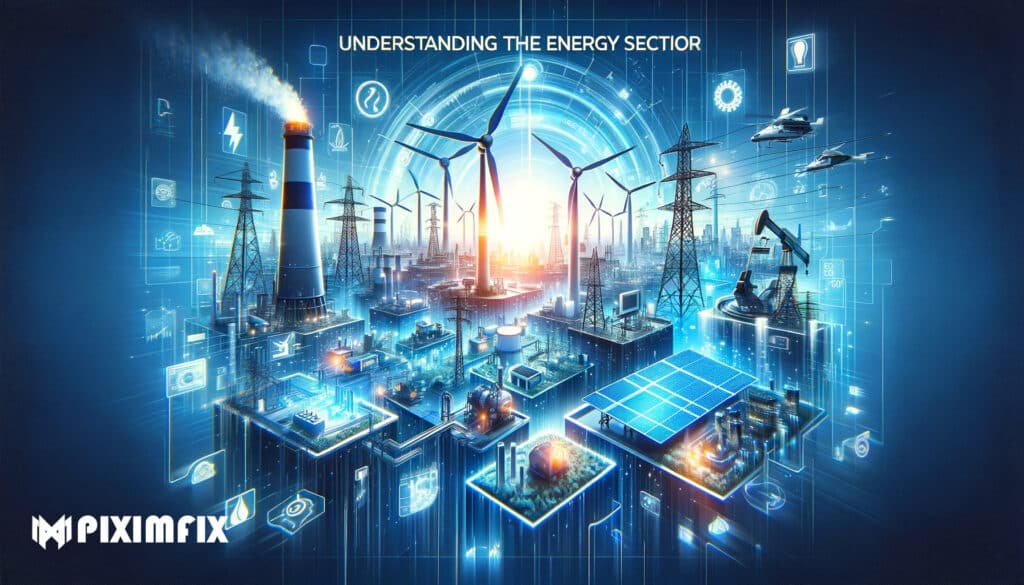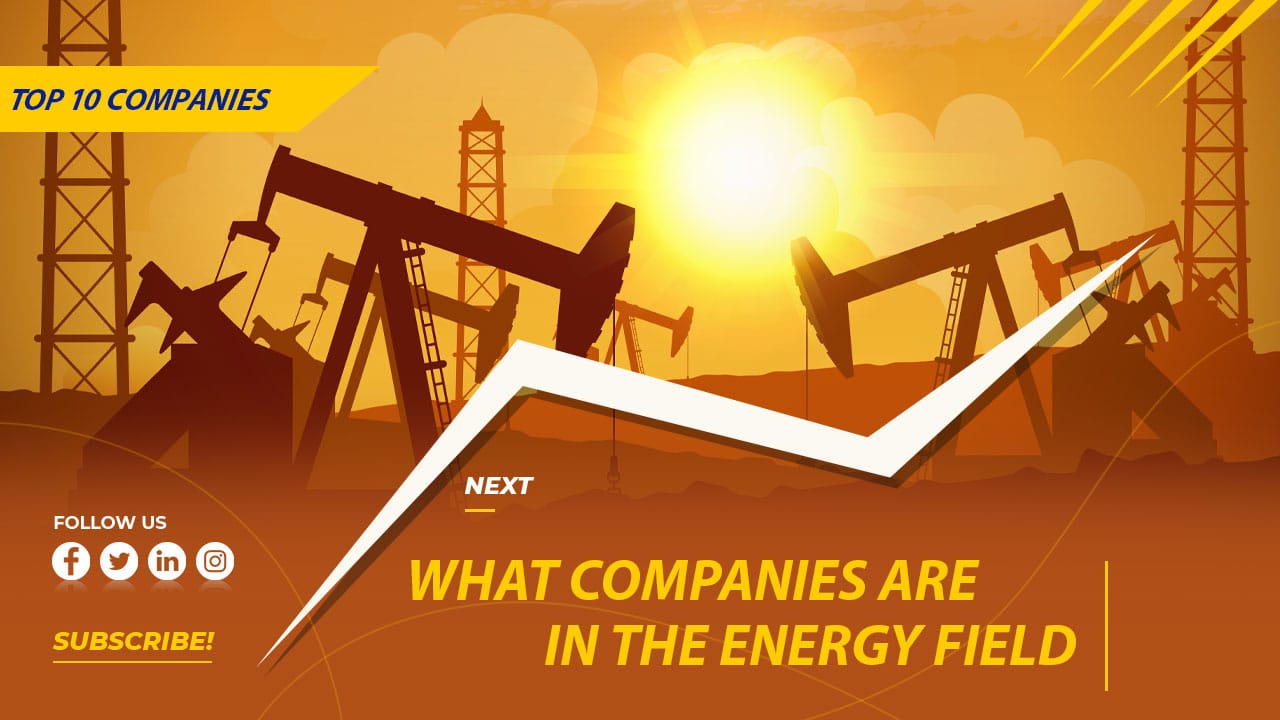The energy sector, a cornerstone of the global economy, is a dynamic and ever-evolving industry that powers our daily lives. From lighting our homes to fueling transportation, energy is indispensable. This sector encompasses a diverse range of companies, including giants in oil and gas, pioneers in renewable energy like solar and wind, and innovators in emerging technologies such as battery storage and smart grids.
In this article, we’ll delve into the various companies that form the backbone of the energy field, explore the latest trends shaping its future, and highlight the exciting career opportunities it offers. Join us as we embark on a journey to understand the key players and developments in this vital industry.
We’re privileged to have Roshan share their insights with us today. With over 11 years of experience in this field, Roshan’s expertise in addressing the evolving challenges and innovations within the energy sector is invaluable. Their unique perspective on sustainable energy solutions and industry trends is based on a rich background that includes a blend of academic qualifications in environmental science and renewable energy, as well as hands-on experience in both traditional and renewable energy companies. This combination of theoretical knowledge and practical application gives Roshan a comprehensive understanding of the energy sector’s current landscape and future potential.
The Energy Sector: An Overview
The energy sector is a vital component of the global economy, responsible for producing and supplying fuel and power to industries and households worldwide. It encompasses a wide array of activities, including the extraction, manufacturing, refining, and distribution of energy resources. Historically, this sector has been dominated by fossil fuels like oil, coal, and natural gas, which have been the bedrock of industrial development and economic growth.
However, the industry has been undergoing a significant transformation, marked by a gradual shift towards renewable and sustainable energy sources such as solar, wind, and hydroelectric power. This evolution reflects the growing awareness of environmental issues and the need for cleaner, more sustainable energy solutions to meet the demands of a rapidly changing world.
Major Types of Energy Companies

Renewable Energy Companies
- Solar, Wind, and Geothermal Energy: These companies are at the forefront of harnessing energy from natural, sustainable sources. Solar energy firms focus on converting sunlight into electricity, wind energy companies utilize wind turbines for power generation, and geothermal energy is derived from the Earth’s internal heat.
- Key Players and Innovators: Companies like Vestas, Siemens Gamesa for wind energy, SunPower and First Solar in the solar industry, and Ormat Technologies in geothermal energy are leading the way with innovative solutions and technologies.
Oil and Gas Companies
- Traditional Energy Giants and Their Global Impact: These companies, including ExxonMobil, Chevron, and Shell, have historically been the powerhouses of the energy sector, significantly contributing to the global economy but also facing criticism for environmental impacts.
- Transition Strategies Towards Renewable Sources: Many of these traditional giants are now investing in renewable energy projects, diversifying their portfolios to include solar and wind energy initiatives, reflecting a shift towards more sustainable energy practices.
Nuclear Energy Providers
- Role in the Global Energy Mix: Nuclear energy, generated through the fission process in nuclear power plants, remains a significant part of the global energy mix. It’s known for providing a stable and large-scale source of low-carbon power.
- Safety and Technological Advancements: Safety remains a paramount concern in nuclear energy. Companies in this sector, like Rosatom, EDF, and Westinghouse Electric Company, are continually advancing technology to enhance the safety and efficiency of nuclear reactors, while also exploring next-generation technologies like small modular reactors (SMRs).
Emerging Trends in the Energy Sector
The energy sector is currently witnessing a significant shift towards renewable and sustainable energy sources. This transition is driven by a global recognition of the need to reduce carbon emissions and combat climate change. Solar, wind, and hydroelectric power are gaining prominence, supported by advancements in technology such as improved battery storage and smart grid solutions. These innovations enhance the efficiency and reliability of renewable energy, making it more competitive with traditional energy sources.
Additionally, government policies and environmental regulations play a crucial role in shaping the energy landscape. Initiatives like carbon pricing, subsidies for clean energy, and targets for reducing greenhouse gas emissions are accelerating the adoption of renewable energy. These regulatory frameworks not only encourage the development of greener energy solutions but also compel traditional energy companies to adapt and innovate, ensuring a more sustainable and environmentally conscious future for the energy sector.
Career Opportunities in the Energy Field
The energy sector offers a diverse range of career opportunities, reflecting its dynamic nature and the ongoing transition towards more sustainable practices.
Job Roles and Career Paths
- Technical Roles: Engineers, geoscientists, and technicians in renewable energy, oil and gas, and nuclear sectors.
- Research and Development: Scientists and researchers focusing on new energy technologies and sustainability solutions.
- Project Management and Operations: Roles in managing energy projects, overseeing operations, and ensuring regulatory compliance.
- Sales and Marketing: Professionals who market energy solutions and manage client relationships.
- Policy and Consulting: Experts in energy policy, environmental law, and sustainability consulting.
Skills and Qualifications
- Technical Expertise: Engineering degrees, geoscience, and environmental science qualifications are highly valued.
- Innovation and Problem-Solving: Skills in innovation and the ability to solve complex problems are crucial, especially in R&D roles.
- Project Management: Skills in managing projects, budgets, and teams are essential for operational roles.
- Communication and Interpersonal Skills: Important for sales, marketing, and consulting roles.
- Awareness of Environmental Regulations: Understanding of environmental laws and policies is key, especially in policy and consulting jobs.
Future Prospects and Growth Areas
- Renewable Energy: Solar, wind, and other renewable sectors are rapidly growing, offering increasing job opportunities.
- Sustainability and Environmental Management: As companies focus on reducing their environmental impact, roles in sustainability are becoming more prevalent.
- Technology and Innovation: With the ongoing digital transformation in the energy sector, roles in data analysis, AI, and IoT are expanding.
- Global Energy Policy and Management: As energy becomes a more pressing global issue, there is a growing need for professionals in international energy policy and management.
The energy sector’s evolution promises a future rich with diverse and fulfilling career opportunities, catering to a range of skills and interests, and contributing to a more sustainable world.
The Future of Energy: What’s Next?

The future of the energy sector is poised at a transformative juncture, shaped by several key factors and trends.
Predictions for the Energy Sector’s Development
- Renewable Energy Dominance: The shift towards renewable energy sources like solar, wind, and hydro is expected to accelerate, with these becoming the primary sources of global energy.
- Decentralization and Digitalization: The energy sector is likely to see a move towards decentralized systems, facilitated by digital technologies like smart grids and IoT, enabling more efficient energy distribution and consumption.
- Electrification of Transportation: The rise of electric vehicles (EVs) and the electrification of public transport systems will significantly impact energy demand patterns.
Potential Challenges and Opportunities
- Infrastructure Transformation: Upgrading existing energy infrastructure to support new technologies and energy sources presents both a challenge and an opportunity for innovation.
- Energy Storage and Grid Stability: As reliance on intermittent renewable sources grows, developing efficient energy storage solutions becomes crucial.
- Geopolitical Shifts: Changes in global energy dynamics, with different countries emerging as leaders in renewable energy, could reshape geopolitical relations.
The Role of Climate Change and Sustainability
- Driving Policy and Innovation: Climate change is the primary driver behind the push for sustainable energy solutions, influencing government policies and spurring technological innovation.
- Corporate Responsibility and Investment: Companies are increasingly held accountable for their environmental impact, leading to more investment in sustainable practices and technologies.
- Public Awareness and Demand: Growing public awareness of environmental issues is likely to continue shaping consumer preferences and demand for clean energy.
The future of energy is intrinsically linked to sustainability and technological innovation, with the sector set to undergo significant changes in response to environmental challenges and evolving global needs.
Top Companies in the Energy Field: A Closer Look
The energy sector is diverse, with companies ranging from traditional oil and gas giants to innovative leaders in renewable and alternative energy sources. Here’s a closer look at some of the key players in these areas:
Renewable Energy Leaders
- Vestas: A frontrunner in wind energy, Vestas specializes in manufacturing, installing, and servicing wind turbines.
- First Solar: Known for its photovoltaic (PV) solar panels, First Solar is a major player in the solar energy industry.
- Orsted: This Danish company has made significant strides in offshore wind energy, leading the way in harnessing wind power at sea.
Traditional Oil and Gas Giants
- ExxonMobil: One of the world’s largest publicly traded oil and gas companies, ExxonMobil has a significant global presence in energy production.
- Royal Dutch Shell: Shell is not only a major player in oil and gas but is also increasingly investing in renewable energy projects.
- Saudi Aramco: The state-owned Saudi Arabian company is the world’s largest oil producer, playing a crucial role in the global energy supply.
Innovators in Nuclear and Alternative Energy Sources
- Rosatom: A Russian state corporation, Rosatom is a leader in nuclear energy, providing a wide range of nuclear services and products.
- Westinghouse Electric Company: Known for its technology and services in the nuclear energy sector, Westinghouse is a key player in nuclear power plant design and construction.
- Tesla, Inc.: While primarily known for electric vehicles, Tesla also innovates in battery storage and solar energy solutions, making it a significant player in alternative energy.
These companies represent the diverse nature of the energy sector, each playing a unique role in shaping the industry’s present and future. From traditional energy sources to cutting-edge renewable technologies, these companies are at the forefront of the global energy landscape.
How to Get Involved in the Energy Sector
For those aspiring to join the dynamic world of the energy sector, several pathways and strategies can pave the way for a successful career.
Educational Paths and Courses
- Degrees in Engineering, Environmental Science, or Renewable Energy: Pursuing specialized degrees in fields like mechanical, chemical, or environmental engineering, as well as renewable energy, provides a strong foundation.
- Certifications and Online Courses: Certifications in project management, energy management, and sustainability, along with online courses on platforms like Coursera or edX, can supplement formal education.
Networking and Professional Development
- Industry Conferences and Seminars: Attending events like the World Energy Congress or Renewable Energy Markets Conference can provide valuable networking opportunities.
- Professional Associations: Joining organizations like the International Association for Energy Economics (IAEE) or the American Solar Energy Society (ASES) can offer networking and learning opportunities.
Job Hunting and Career Advancement Tips
- Internships and Entry-Level Positions: Gaining practical experience through internships or entry-level roles is crucial.
- Staying Informed About Industry Trends: Keeping up-to-date with the latest developments in the energy sector can make candidates more attractive to employers.
- Building a Strong Online Presence: A professional LinkedIn profile highlighting skills and experiences can be a powerful tool in job hunting.
Embarking on a career in the energy sector requires a combination of relevant education, proactive networking, and staying abreast of industry trends, all of which are key to unlocking opportunities in this ever-evolving field.
Conclusion
In this exploration of the energy sector, we’ve uncovered its diverse landscape, from traditional oil and gas giants to innovative leaders in renewable and nuclear energy. We’ve seen how the sector is evolving with the shift towards sustainable energy sources, driven by technological advancements and environmental policies. The future of energy is bright, with renewable sources set to play a dominant role, and the sector continues to offer a wealth of career opportunities across various fields.
For those intrigued by the dynamic nature of the energy industry, now is an exciting time to get involved. Whether you’re considering a career in this field or looking to invest, the energy sector promises a realm of possibilities and the chance to contribute to a more sustainable and innovative future. The journey into the energy sector is not just a career choice but a step towards participating in a pivotal area of global development and environmental stewardship.
Frequently Asked Questions
What Are the Main Types of Energy Companies?
There are primarily three types:
- Renewable Energy Companies: Focus on solar, wind, hydroelectric, and geothermal power.
- Oil and Gas Companies: Involved in the extraction, refining, and distribution of fossil fuels.
- Nuclear Energy Companies: Specialize in producing energy through nuclear fission.
2. How Is the Energy Sector Responding to Climate Change?
The sector is increasingly shifting towards renewable energy sources, investing in sustainable technologies, and adopting practices to reduce carbon emissions and environmental impact.
3. What Are the Career Opportunities in the Energy Sector?
Careers range from engineering, research, and development in renewable and traditional energy sources to roles in project management, policy, and sustainability consulting.
4. What Skills Are Needed to Work in the Energy Sector?
Technical skills in engineering and science are crucial, along with project management, problem-solving, and an understanding of environmental policies and sustainability practices.
5. Are Renewable Energies Becoming More Prevalent?
Yes, renewable energies like solar and wind are growing rapidly, driven by technological advancements and the global push for sustainability.
6. What Is the Future Outlook for the Energy Sector?
The sector is expected to see increased dominance of renewable energy, technological innovations like smart grids and energy storage, and a continued focus on sustainability.
7. How Can I Stay Updated on Energy Sector Trends?
Following industry news, attending conferences, and joining professional associations are effective ways to stay informed about the latest trends and developments in the energy sector.

